ABOUT THE GEDDES TRUST
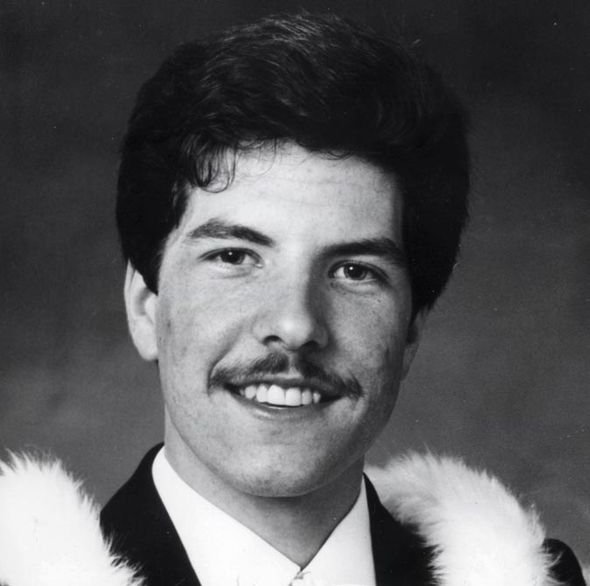
The awards are named after Philip Geddes, a member of St Edmund Hall and a journalist of considerable promise. After graduating, he joined the staff of the London Evening Standard, then moved to the staff of the Daily Express. In December 1983 he was in Harrods, the Knightsbridge store, when orders were issued for the building to be evacuated. Realising there was a story to be had, he went to investigate. He was killed by the blast from a bomb planted by the IRA. Philip Geddes was just 24.
A tree and plaque in the gardens of St Edmund Hall commemorate his life, and since 1984 the Philip Geddes Memorial Prize has encouraged promising student journalists on the path to Fleet Street, radio and television. Former prizewinners are employed by the BBC, ITN, Reuters, the Economist, and a wide range of Fleet Street newspapers.
Each year a first prize of £2,500 is given to the most promising student journalist at Oxford University.
Student journalists who specialise in sports writing are also able to compete for The Clive Taylor Prize for Sports Writing, a £2,000 special award in memory of the distinguished cricket writer. Students can also apply for the Ronnie Payne Prize, a £2,000 prize for foreign reporting given in honour of the acclaimed foreign correspondent.
THE TRUSTEES

Peter Cardwell
Chairman of Trustees
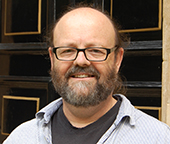
Professor Wes Williams
Geddes Fellow, St Edmund Hall
Wes Williams teaches French language and literature, with a particular focus on the sixteenth and seventeenth centuries; he also teaches European film, and literary theory. His main research interests are in the field of Renaissance literature: the critical study of genre and of subjectivity; investigations into the politics of literature, experience, and the popular and professional cultures of the early modern period. He is a founder-member and Director of Oxford Amnesty Lectures. Alongside academic work, Wes writes and directs for the theatre. He has co-written and directed a number of solo shows in collaboration with Emily Woof (Sex II; Sex III; Going, going…), Nick Whitfield (Albert Camus, what’s the score?; Roadmovie), and Ed Gaughan (Radioplay). His most recent show is a double act, with Ed Gaughan and Andy Buckley, entitled Saints and Superheroes.

Emma Byrne
Trustee
Emma Byrne is an assistant editor of the Spectator and the London Evening Standard’s dance critic. She started her career as a trainee sub-editor at the Daily Mail, before becoming chief sub of the Irish Daily Mail and production editor of Condé Nast Brides magazine. She has also worked as a freelance sub-editor at the Mail on Sunday and the Sunday Times, and has written for the Daily Mail and Sunday Times. While at Oxford (Jesus College), she worked on the Oxford Student as music editor before being appointed deputy editor.

Tony Diver
Trustee

Harry Hodges
Trustee
Harry Hodges is a former deputy comment editor of the Daily Telegraph. Previously he was associate features editor of the Daily Mail and deputy comment editor and leader writer at the Daily Express. While at Oxford he was the founding editor-in-chief of The Tab Oxford. He was awarded the St Edmund Hall prize in 2013 and after university worked at the Tab’s national head office before moving to the Daily Express. He has also written for the London Evening Standard, the Daily Star and the Huffington Post.

Molly Lynch
Trustee
Molly Lynch began her career as a journalist at the age of 18 at the North West Evening Mail in her home town of Barrow-in-Furness, which was also the home of Philip Geddes. Molly was eventually made health editor and in this role did much of the original reporting into the deaths of babies at Furness General Hospital, which led to the government-ordered Morecambe Bay inquiry. She then moved to Yorkshire to work at The Star in Sheffield and The Yorkshire Post, covering a mix of investigations and politics. In 2016, after a stint working for the MP John Woodcock (now Lord Walney), Molly joined the BBC as a producer on Radio 5 Live working across Breakfast, Drive and The Emma Barnett Show. Since August 2019, she has been a producer at BBC Radio 4’s World at One and PM and recently edited her first programme. She also presented a BBC podcast about abuse of politicians on the 2019 General Election campaign trail.

Marianna Spring
Trustee
Marianna Spring is the BBC’s first specialist disinformation and social media reporter, who investigates the real-life consequences of viral conspiracy theories, falsehoods and abuse shared on social media. Her journalism appears across TV, radio and online for News and Current Affairs, including for BBC News at Six and Ten, Panorama, Newsnight, Radio 4 and World Service. Most recently she was included in the Forbes 2021 list of 30 Under 30 in Media and Marketing. She won the Ronnie Payne Prize in 2017 – and edited Cherwell Newspaper during her time studying French and Russian at Oxford University.
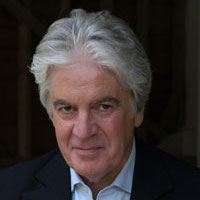
Christopher Wilson
Emeritus Trustee
Christopher Wilson, author and journalist, is a Founding Trustee of the Philip Geddes Memorial Fund. Philip was working for him at the Daily Express when he was killed by the IRA. Christopher Wilson’s assiduous work over 25 years for the fund has been key to drawing donations of more than £100,000 to encourage excellence in Oxford student journalism. He is an elected member of the Senior Common Room at St Edmund Hall in recognition of his efforts. He has a wide background in television and print journalism, having worked as environmental correspondent for ITV, for the Daily Mail, the Sunday Telegraph and as diplomatic correspondent of the Daily Express. More information can be found on his website, www.christopherwilson.info

Sandra Barwick
Emeritus Trustee
Sandra Barwick (St Hilda’s College) knew Philip Geddes at Oxford, which is how she came to be involved in the prizes. She has had a long, varied career on Fleet Street, mainly as a news reporter, and is also a former news features editor of the Daily Telegraph, home editor of the Spectator, and a former columnist on the Independent, for which she was highly commended in the British Press Awards, the Sunday Times and the London Evening Standard. She worked as a staff reporter on the Independent, the Daily Mail and the Daily Telegraph, and has also worked in features, on magazines and as a freelance.
THE AWARDS
Every year, the Philip Geddes Memorial Fund awards prizes in honour of the three journalists described below to students at Oxford. How to apply and the full criteria for entry can be found here
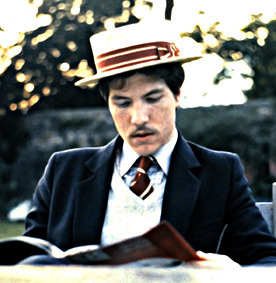
Philip Geddes Memorial Prize
The awards are named after Philip Geddes, a member of St Edmund Hall and a journalist of considerable promise. After graduating he joined the staff of the London Evening Standard, then moved to the staff of the Daily Express. In December 1983 he was in Harrods, the Knightsbridge store, when orders were issued for the building to be evacuated. Realising there was a story to be had, he went to investigate. He was killed by the blast from a bomb planted by the IRA. Philip Geddes was just 24.
A tree and plaque in the gardens of St Edmund Hall commemorate his life, and since 1984 the Philip Geddes Memorial Prize has encouraged promising student journalists on the path to Fleet Street, radio and television. Former prizewinners are employed by the BBC, ITN, Reuters, the Economist, and a wide range of Fleet Street newspapers.
This prize of £3,000 is open to any Oxford student and is awarded to the most promising student journalist. Judges are looking for fact-based accurate reporting.
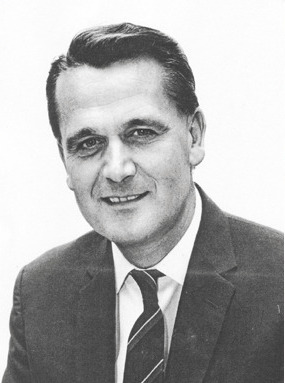
Clive Taylor Prize
A £2,500 prize is awarded to a student journalist (open to all current Oxford postgraduates or undergraduates regardless of year of study) who specialises in sport. Judges are looking for fact-based accurate reporting.
Clive Taylor was cricket correspondent of The Sun, and a journalists’ journalist, highly regarded by his peers. He wrote very well, and could have turned his hand to most kinds of journalism, but his passion was for cricket, and he focused all his skills on the game. He dictated at high speed clear, insightful copy which made the reader feel as though he was watching the game. Because he worked for a paper with a very high circulation he had to hit early deadlines. Often he would write 1000 words on a match in 25 minutes, not only accurately but with style and humour.
When he died in 1977 The Cricketer described him as “a master craftsman” and one of the “most rational and constructive critics” of the game. The Sun promoted their writer as the man the players themselves read, and his journalistic peers admitted it was true.
Yet, as John Arlott noted, Taylor never became emotional about the game. “Rather he saw it in the round and noted its weaknesses in the hope that he might help to repair them.” Nor did he twist a fact for the sake of a story.
John Woodcock (The Times) wrote after his death: “He could have written with equal distinction for any newspaper in the world, and on a whole range of subjects. That he chose cricket was cricket’s good fortune.”
A useful club cricketer himself, Taylor naturally offered to cover as many matches as possible when he began work as a young man for a local paper – the Tooting and Balham News and Mercury in south London, where he covered most sports. From there he moved to the Morning Advertiser as a sports columnist, and then to Hayters Sports Agency before being hired by The Sun in 1964.
He toured with every major MCC team in the 19 years before he died, aged 50, having been lucky enough to spend most of his working life writing about his passion.
Extracted from “A Dazzling Debut”, 20 December 1976, The Sun:
“John Lever, his fair hair flapping round his shoulders like a Viking, yesterday brought down India, the lords of the East, in the First Test.
For the first time in 12 years they suffered the humiliation of being made to follow on before their own countrymen, who have grown sleek and content watching their success. That was the doing of Lever, who in his Test debut took 7 for 46, the best performance by anyone in his first bowl for England.
For all but three overs of the innings, as India were put out for 122, Lever occupied one end, always superb, swinging the ball into the pads with his left-arm deliveries and sometimes angling it across twoards slips. The confusion he created on a pitch doped into unconsciousness was complete….
“With four wickets already landed, the Essex man went 80 minutes yesterday morning before he took another. Then Knott caught Patel off bat and pad down the legside and half India were out for 96. Three runs later Sunil Gavaskar, the most talented of all their basmen, went for the hook despite three men posted for the shot and stood transfixed watching his own downfall. For 25 yards round the boundary edge Willis’s giant strides ate up the ground as the ball hung in the air, then as he made the catch he stumbled, fell and hung on.
The other ten of the England team raced 80 yards over the outfield to congratulate him.
Immediately afterwards Willis, now a sort of gully in the tight ring of attacking fielders, flung himself to his right and slid his fingers under a sliced drive the Sharma had hit brutally hard. That wicket belonged to Underwood – the first time any bowler other than Lever had intervened.
When they started again Lever lifted out Kirmans’s off-stump with an in-swinger so sharp that the batsman finished up facing mid-on. Then Old finished of Bedi, Chanra and the Indian innings in two balls.
Ten minutes later Lever, the edge gone by now, was starting his new opening spell of five overs. Yet the memory of his earlier success will keep him warm for the rest of his life as a professional cricketer.”
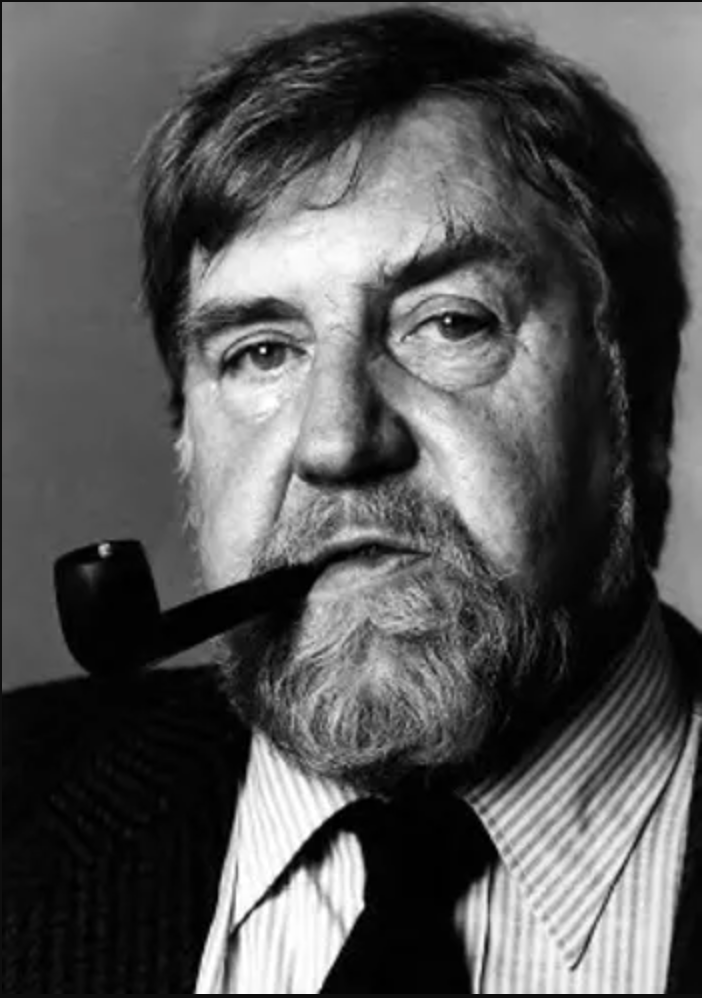
Ronnie Payne Prize for Foreign Reporting
This prize of £2,500 is open to any Oxford students who have already participated in student journalism and hope to make their career in journalism. Applicants for the Ronnie Payne Prize are required to put forward a proposal for a journalistic project which will take them abroad, that project being funded or part-funded by the prize money
Ronnie Payne was a Royal Marine before studying History at Jesus College and then moving into journalism. As a foreign correspondent and then diplomatic correspondent for the Daily Telegraph he travelled the world, covering anti-colonial troubles in Lebanon, Cyprus, Morocco, Tunisia and Algeria. He once interviewed Colonel Gaddafi and during the Yom Kippur war in 1973 was rescued, under artillery fire, from his broken down car by an Israeli officer. He spent three days in Ariel Sharon’s headquarters before filing his report and being reunited with his car.
As well as his work for the Telegraph he was a leader writer for the Evening Standard, spent time on the short-lived news magazine Now and The European and was the author of numerous books. With his trademark pipe and beard he was a familiar figure on Fleet Street for many years.
The Ronnie Payne Prize, established by his wife Celia Haddon, is given for foreign reporting and was first awarded in 2015. The Geddes Trustees are enormously grateful for this generous support for enterprising young journalists.
You can read more about Ronnie in the Telegraph’s obituary here.

The Paddy Coulter Prize for Opinion Journalism
A £2,500 prize – is open to all current Oxford postgraduates or undergraduates regardless of year who specialise in writing opinion pieces on contemporary global issues. The winner will need to demonstrate the ability to present a compelling, thought provoking argument drawing upon evidence and reasoned judgment to support their opinions. The ability to communicate complex ideas in a clear and engaging manner is key.
The prize is in memory of Paddy Coulter, journalist, broadcaster, and campaigner, who fought hard both to change the way western media regularly misrepresent life in the developing world, and to advance the interests of journalism and journalists worldwide.
